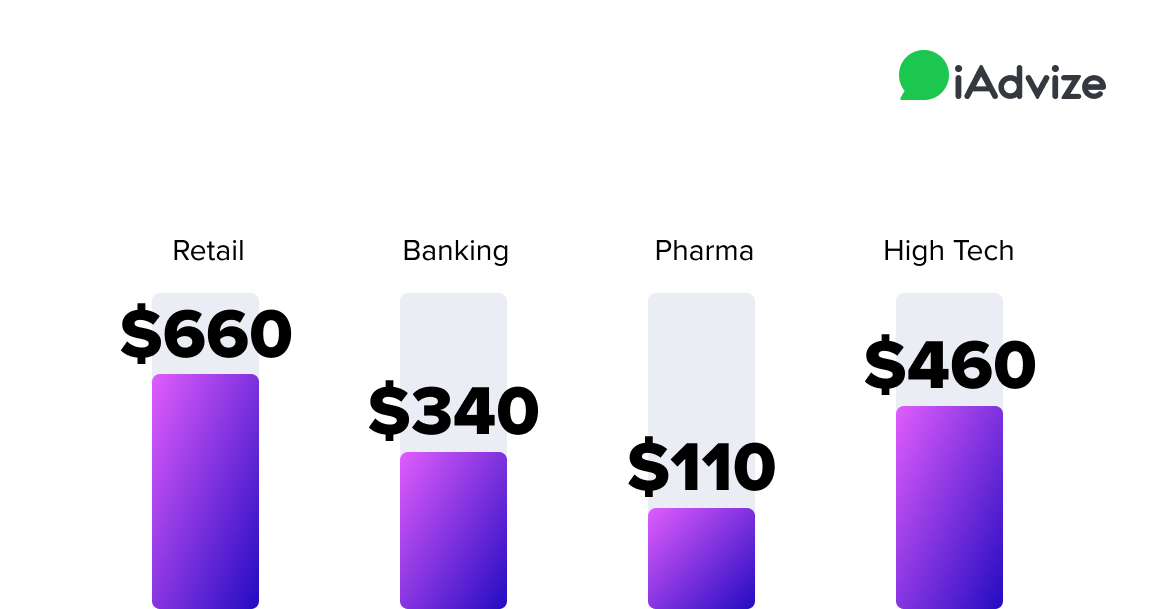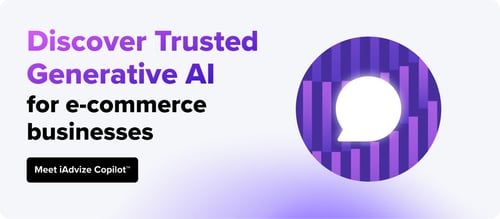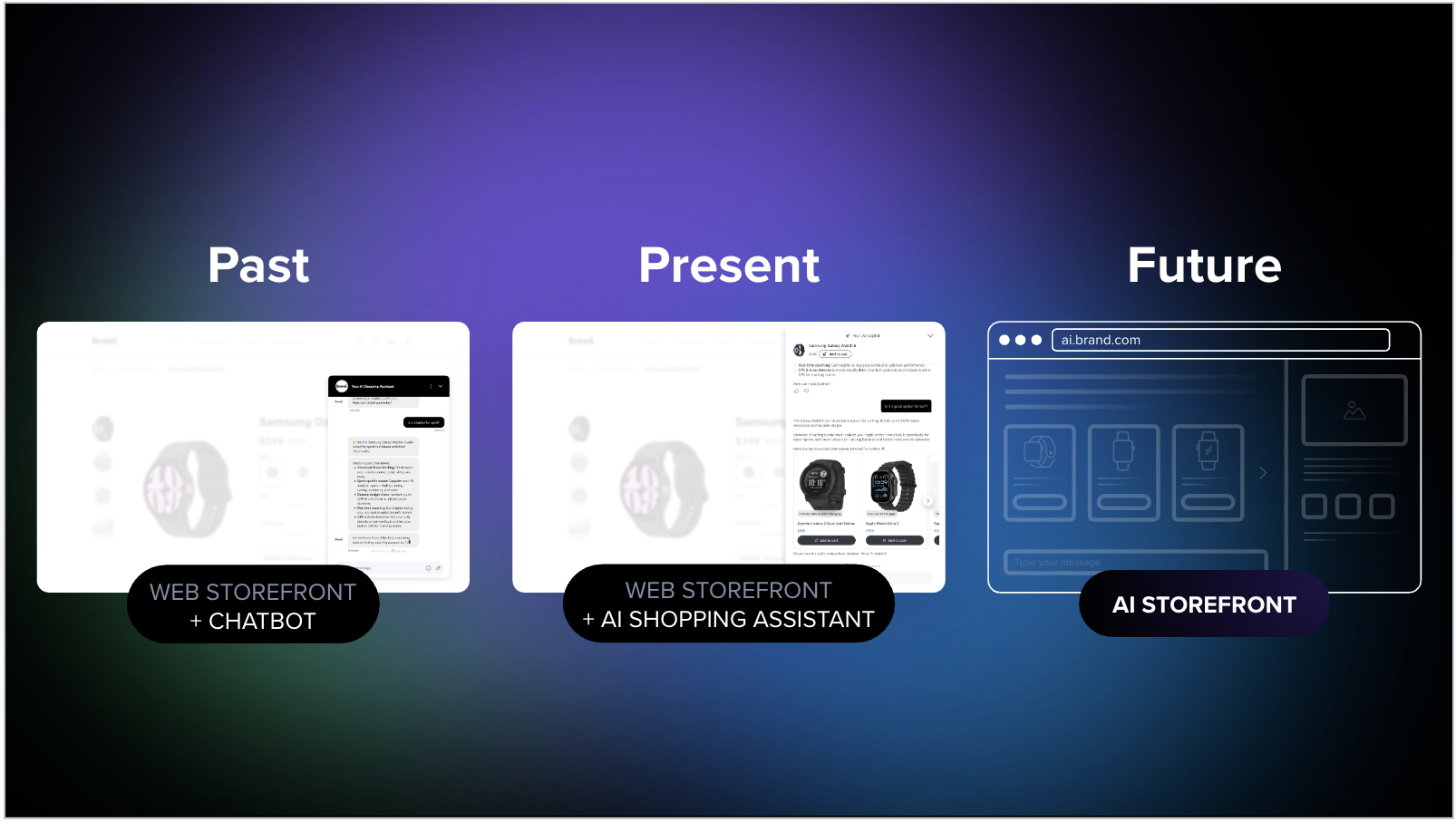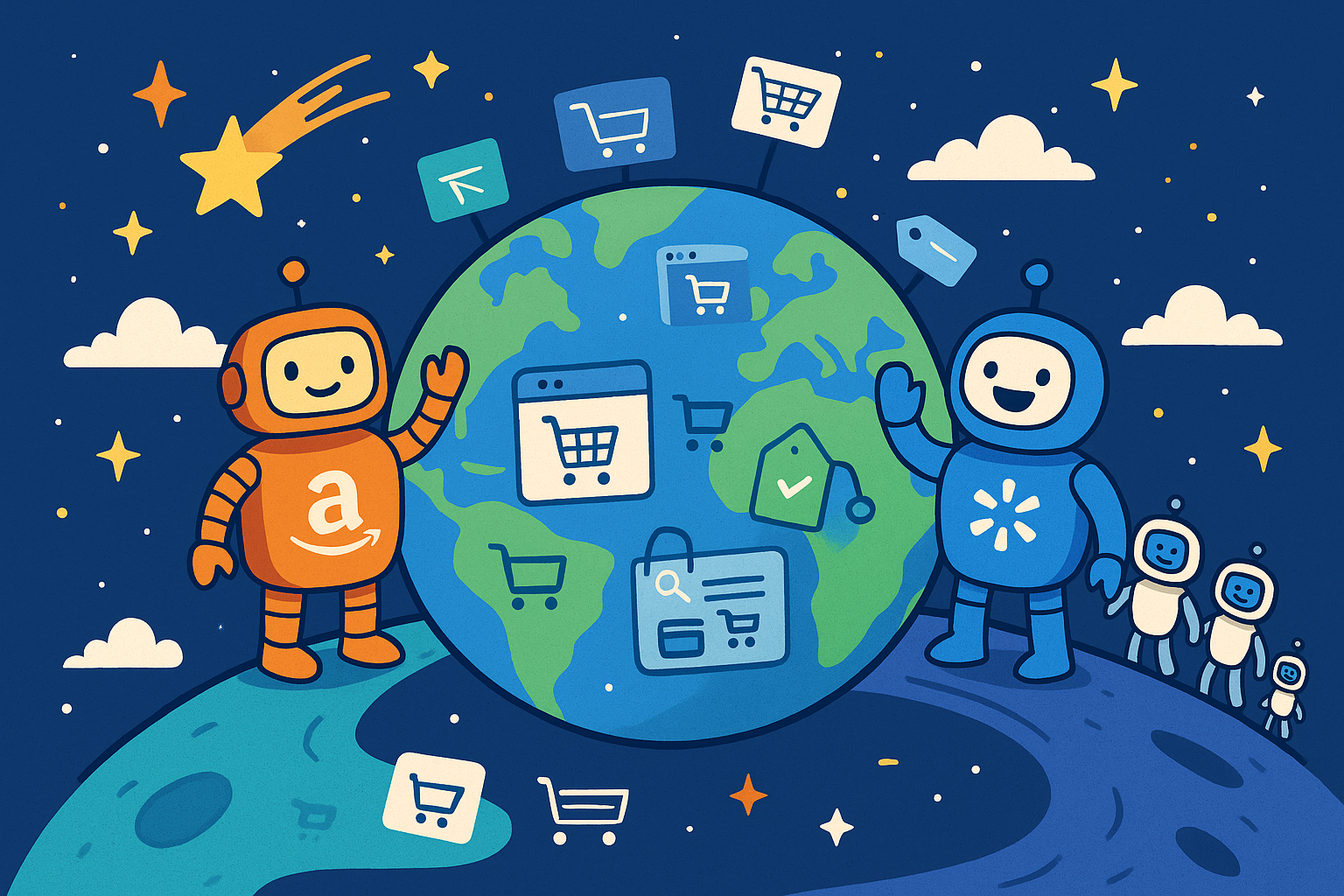Generative AI for E-Commerce: How AI is Changing the Workplace
iAdvize

With each advancement, professionals sometimes find themselves concerned about the impact of generative AI on their careers. But will these technology models truly transform the job market? To answer this complex question, we turned to Isabelle Galy, AI expert on issues related to the future of work. With a background in law, Isabelle once served as the Deputy Secretary-General of Club Sénat, the digital economic think tank. She later co-founded ClusterAI, an association dedicated to artificial intelligence. Now at the helm of the House of Artificial Intelligence, her mission is to help people better understand this new technology.
Generative AI is Changing the Way We Work: What to Expect
AI is becoming more integrated into many areas of our personal and professional lives, but this technology didn't emerge overnight. With origins dating back to the 1950s, AI has evolved through the decades with many advancements, like deep learning, image recognition, and large language models (LLM). AI has long been a part of our lives, and the widespread adoption we’ve seen in recent years has only brought it more to the forefront.
"The current revolution we’re experiencing, be it AI in general or generative AI, has made artificial intelligence accessible to the general public."
– Isabelle Galy, AI Expert
Despite this, people still lack awareness of AI's role in our daily lives. Have you ever used an app to identify a plant, a filter for your Instagram story, or facial recognition to find a photo in the cloud? All of these are examples of AI software at work. So, if you've been wowed by the capabilities of AI tools like ChatGPT, Google Bard, and Midjourney, but never dove deeper into understanding how they work, you're not alone. Recognizing and bridging this gap is going to be crucial going forward, to both debunking misconceptions surrounding AI and remaining competitive in a changing job market.
Avoiding a Technological Divide
"Whether it's good or bad, in the world of tomorrow, we’re going to live with artificial intelligence. Hence, the general public needs to be comfortable with this technology."
– Isabelle Galy, AI Expert
As leader of the House of Artificial Intelligence, Isabelle Galy has made it her mission to help facilitate the adoption of AI among consumers. According to her, ensuring that the population has the necessary information to harness these new tools is essential to avoid seeing a similar technological divide to the one caused by the digital revolution. Because the reality is, whether you’re a salesperson or a developer, everyone will be impacted by the public availability of advanced AI tools.
Generative AI's Impact Across All Industries
Total estimated generative AI value potential per industry, annually, in billions
Whether it's content creation, coding, research, or mathematics, generative AI functions as a multifaceted assistant. According to a report released by Mckinsey, this revolution will affect revenue potential on a massive scale, across all industries. This was also the sentiment expressed by Isabelle Galy when we asked her whether some professions might be more impacted than others.
"It's a technological breakthrough, much like the digital era was, just as computing was. And it ushers in a significant transformation in work in a very cross-cutting manner—across every industry and profession."
– Isabelle Galy, AI Expert
The Challenges of AI Customer Solutions for Customer Service
While all professions will need to evolve with the advent of new AI models, some are already ahead of the curve. This is especially the case for e-commerce and customer service. Many websites are becoming equipped with generative AI-powered chatbots that produce accurate and instant responses to all visitors, and provide efficient response assistance to customer service agents, all while adhering to a custom brand tone and rules. These online AI chat solutions are also capable of incorporating keywords for SEO optimization, meaning new ways of working for marketing and support professionals.
1. Anticipating and Understanding Consumer Needs
If machines are capable of holding a conversation, are customer service representatives at risk of being replaced entirely? We asked Galy her thoughts on this question:
"The difference between AI and humans is the ability we have to understand the unsaid. Often, when someone asks you a question, the importance isn't truly in the question they're asking but the intention behind it. Only a human can discern that."
– Isabelle Galy, AI Expert
The critical distinction between artificial intelligence and humans is that AI only accesses a primary level of understanding. In other words, it has the ability to respond with factually accurate information to a posed question, but isn’t able to analyze the intention behind it. Human agents, on the other hand, are capable of picking up on the subtleties of consumer needs that go beyond what’s ‘on-paper.’
2. New Standards for Customer Experience
"In time, people will have very high expectations of chatbots."
– Isabelle Galy, AI Expert
Chatbots equipped with AI are extremely user friendly, and this ease of use has greatly contributed to their widespread adoption by the general public. However, once the initial awe of generative AI fades, consumers will become increasingly demanding of this new technology.
Compliance and reliability issues will become central concerns among generative AI adopters. Consumer data protection, adherence to data laws like the CCPA, internal company regulations, and the connectivity of these solutions will emerge as selling points for e-commerce brands and their customers.
Naturally, consumer-grade AI applications raise concerns surrounding data security and privacy—this is why the version of ChatGPT available to the general public isn't suitable for online business usage. Therefore, the question becomes: How can we harness the potential of AI to enhance the customer experience in a way that ensures the protection of all its users?
3. The Need to Rethink Your Management Strategy
"There's a transformation happening where your local manager is turning into a community facilitator. And with AI, they’ll be facilitating both humans and robots."
– Isabelle Galy, AI Expert
The deployment of generative AI in businesses will require organizational changes. From the get-go, it’s important to establish ethical principles to protect employees. Managers will also need to efficiently integrate this technology into their teams.
In most instances, you can't hold an AI accountable in the event of error. So, it's up to the employees responsible for real-time monitoring of their company’s AI behavior to ensure that it functions optimally. The good news is that it's entirely possible to measure an AI tool’s impact on company performance.
As Galy states, the transformations are broad and varied, and the entire chain of responsibility will be subsequently affected.
How Companies Can Facilitate Positive Change
Educating Employees on the Power of Generative AI in the Workplace
"At the moment, what are employees most afraid of in a company? One, not knowing how to use these tools. And two, that the tool might replace them. However, if you have a better grasp on AI, you're more likely to see that it won't replace you, and instead, will make you more efficient."
– Isabelle Galy, AI Expert
Understanding how artificial intelligence operates is essential to helping professionals learn to work with the technology rather than in competition with it. It's up to companies to train their employees on how to master using it in their daily work.
Where should companies start?
How does ChatGPT, when writing a sentence, predict the word it's going to write? Connectionist AI, the kind behind computer vision and generative AI that learns from data, operates on principles of probability and correlation. According to Galy, the first step to AI educational development is to make sure employees know the necessary basics in this area.
"Understanding how the machine works is essential because when we interact with it, it’s important to grasp why it malfunctions. It's said that generative AIs 'hallucinate' when they go awry. Humans need to master the art of prompting since the quality of the AI's responses relies heavily on the quality of the prompts given."
– Isabelle Galy, AI Expert
Team Training and Preparation
"Learning to 'prompt' and 'fine-tune,' that is, learning to create a sequenced dialogue that sharpens based on what's expected from the AI, becomes crucial. Eventually, prompting and fine-tuning will replace machine language (coding) when communicating with these artificial intelligences."
– Isabelle Galy, AI Expert
After understanding its operations and limitations, the next step is to be able to give an AI algorithm clear directions so that it more accurately delivers the desired response. Therefore, companies should focus on training their teams in the art of prompting.
The ability to efficiently ‘prompt’ a generative AI is a cross-functional skill set that will become important across all professions—even going so far as to develop into full-time roles. Its applications are as varied as there are types of professions: marketing prompts, content creation, call centers, etc. While every sector has its unique attributes, mastering the art of prompting will become essential for the general professional population. It's a key capability that not only allows for obtaining relevant AI responses but also for understanding the responses received.
AI Integration Opportunities
Generative AI Creates New Jobs
"Like any technological revolution, generative AI will lead to the disappearance of certain jobs. That's a given. On the flip side, it's also going to create a plethora of new jobs."
– Isabelle Galy, AI Expert
The OECD estimates that 27% of jobs are in professions that might be at risk of disappearing due to the adoption of generative AI. Despite this, the technological revolution is also set to generate new ones.
What exactly will these future jobs in artificial intelligence look like? "At the moment, there's no job without added value in artificial intelligence," Galy asserts. These new high-value positions often require extended education in exchange for a higher salary. Companies are now seeking to hire AI engineers and data scientists—those specialized in AI algorithms, learning systems, and data. These roles will begin to play a crucial part in ensuring that a business’ AI technology relies on ‘clean’ data only.
A New Era of Project Management
"A third thing you're afraid of is that AI will take over the tasks you find interesting. Even a somewhat repetitive task can be relaxing. There will be an adjustment within companies in terms of working conditions. When we work alongside machines, they don't need rest, but humans still do."
– Isabelle Galy, AI Expert
In the face of this technological revolution, the question of task distribution is pivotal. AI is already advanced enough to begin taking over low-value tasks, allowing workers to focus their efforts on more high-value projects, ones that require analysis, creativity, and empathy. While these tasks are more stimulating, they also take more energy and could eventually lead to faster burnout rates among workers. It might become important for businesses to rethink the standard work day to accommodate for this change.
Currently, the impact of generative AI at work is positive. 72% of executives claim that artificial intelligence improves working conditions by allowing their employees to focus on more meaningful tasks.
Instead of discussing replacement, we see an evolution in daily tasks, especially in the customer experience industry. Agents trained on secure and compliant AI tools can increase their productivity tenfold.

.png)
.png)






